by Anita Deeg-Carlin, Director of Intercultural Learning
Launched in 2021 by the Food and Agriculture Organization (FAO) of the Untied Nations (UN), the World Food Forum (WFF) is a “flagship event… that drives action to transform agrifood systems through the power of youth, science and innovation, and investment.” In bringing together stakeholders and interested parties alike, it “serves as a dynamic for turning ideas into action,” where food can take on new and important meanings.
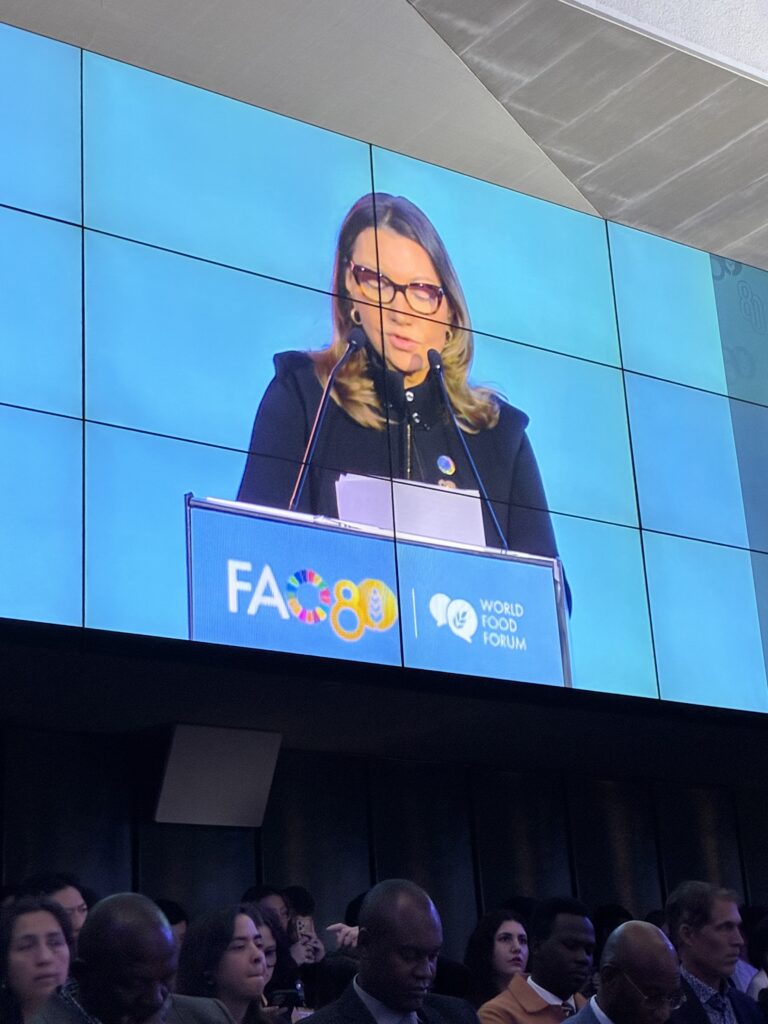
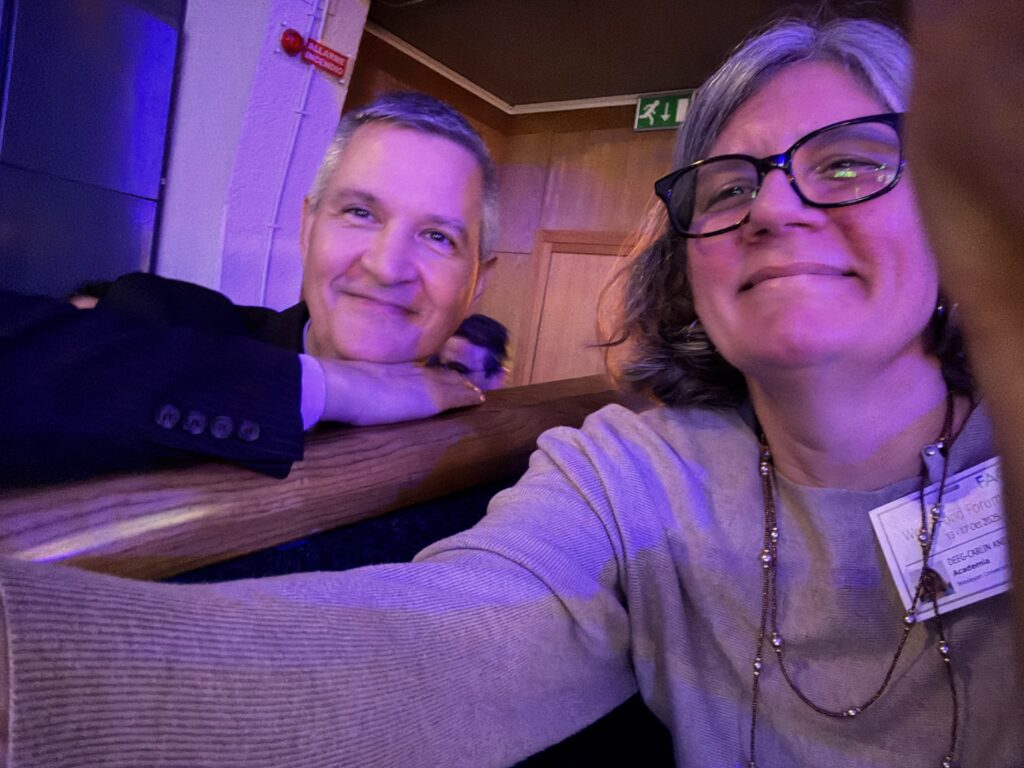
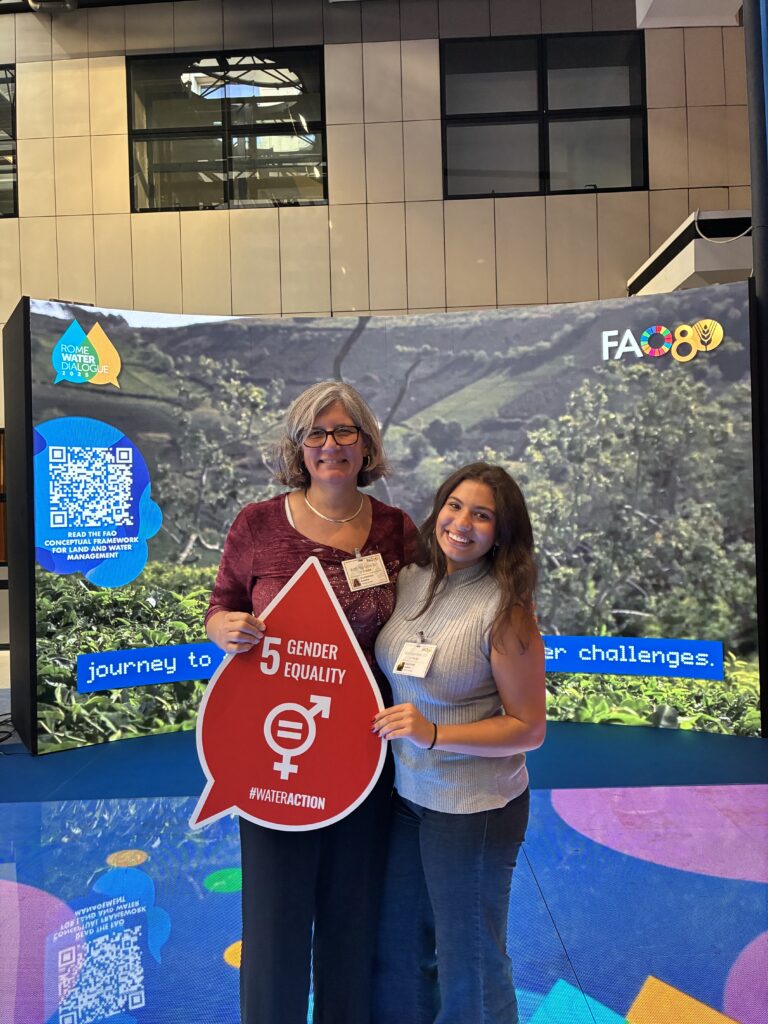
Food is fundamental to global engagement! Choices in how we produce, harvest, trade, prepare, consume, price, store, and transport food are rooted in our cultures, politics, histories, and environments. Those choices determine whether we sustain or destroy communities. Students in the Global Engagement Minor have been exploring the World Food Forum in various capacities over the last few years. Dylan Campos ’24 attended the Forum in person last year during his Watson Fellowship; Julia Augustyn ’25 similarly attended while studying abroad at our Bologna program. This year, Aleyna Gungor ’27 journeyed up from her study abroad site in Bologna to participate. All three were able to visit with Jeff Brez ’89 while in Rome; Jeff has a long career with the United Nations, and is currently Senior Coordinator for the FAO’s Office of the Director-General.
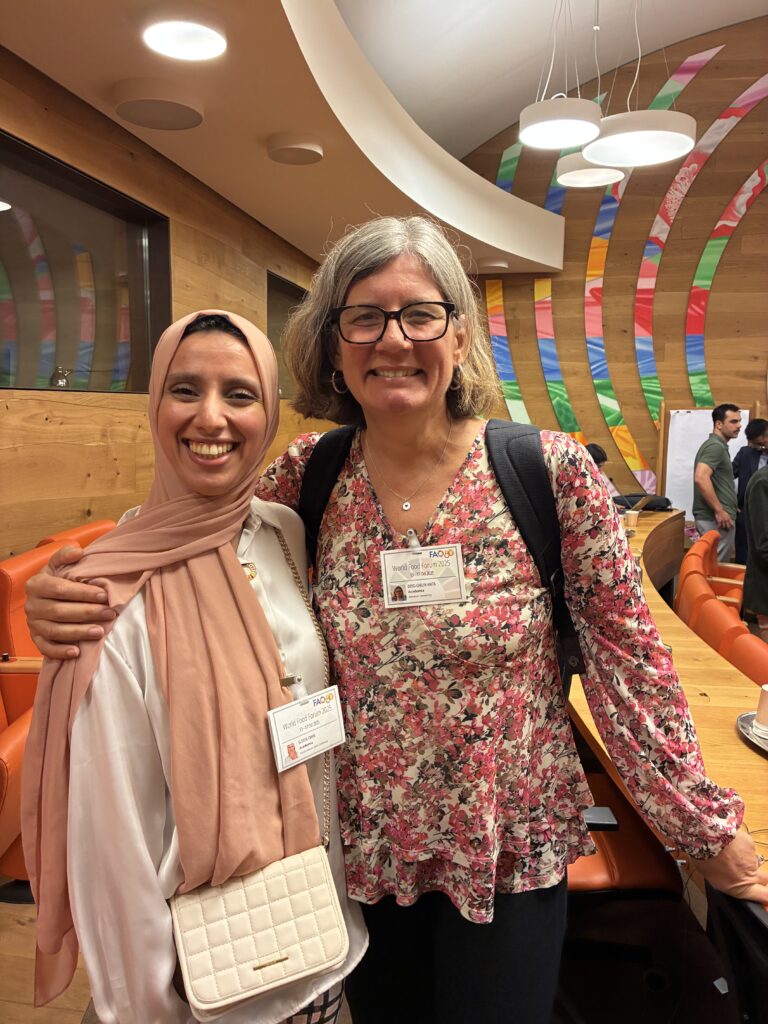
This year, Anita Deeg-Carlin, Director for Intercultural Learning and Coordinator of the Global Engagement Minor, expanded access to this dynamic global dialogue by weaving the 22 students in her CGST 205, Introduction to Global Engagement, course into the Forum’s sessions – remotely! Meanwhile, she made the trip to Rome herself to represent Wesleyan and make direct connections with initiatives that our students might be able to engage with.
During the course of the week, October 13-17, students in the minor’s gateway course selected sessions that fit their interests and schedules. Fiona Jin ’28, international student from China, logged into “Youth Food Journey: From Production Sites in Asia to Action”, where she listened to speakers from Indonesia, South Korea and Nepal share innovations and challenges in linking traditional food production systems that are healthy sustainable to modern endeavors. Charlotte Li ’28 and Abby Wee ’28, both interested in buddhist thought, zoomed in for “Mindful Food Futures – Bhutan’s living wisdom meets global agrifood innovation”, a session that Anita also attended in person. This session applied intercultural skills central to the CGST 205 course – a mindfulness reflection punctuated by the mesmerizing ring of a traditional Himalayan “singing bowl”, grounded this food production dialogue in an atmosphere of humility, care, and respect. Panelists demonstrated how agrifood initiatives embedded in culturally respectful mindsets yield innovations that prioritize healing over profit, resulting in sustainable solutions. Aubrey Piton ’28 joined the “Hand in Hand with Youth: Local Innovation for Global Agrifood Solutions” session, learning about innovative companies like Clean Crop who reduce water use in rice farming in India. Similarly, Ariadna Garcia ’28 learned how “Alternate Wetting and Drying (AWD)” is applied to rice farming in Cambodia, alsoimproving water management, reaffirming for both of them that “that change is possible” and “change starts with us.” Students attended and reflected on over a dozen sessions led by innovative entrepreneurs and young professionals who shared their regional and academic interests and inspired them to hope!
In between sessions, networking conversations, and zooming in for classes back at Wesleyan, Anita spent several hours in the impressive Sami tents in the courtyard of the FAO. The Nomad Indigenous FoodLab is a “groundbreaking initiative that seeks to celebrate and promote the rich culinary traditions of indigenous communities around the world.” Indigenous chefs from around the world cooked seemingly around the clock while leaders sat on reindeer pelts that covered intentionally placed stumps discussing issues of concern. The space echoed two concepts central to the Global Engagement Minor – stories and circles. A small inner circle around a fire allowed for elders and leaders to hold inclusive and non-hierarchical conversations with guest global leaders, while interested folks could witness the conversation from a larger circle, and pose questions when the elders had finished. “The elders are waiting,” said the eldest leader to her young audience in a closing statement. She emphasized that our youth can only be as powerful as their communities are strong, inviting them to seek guidance, wisdom, and solace from their ancestors.
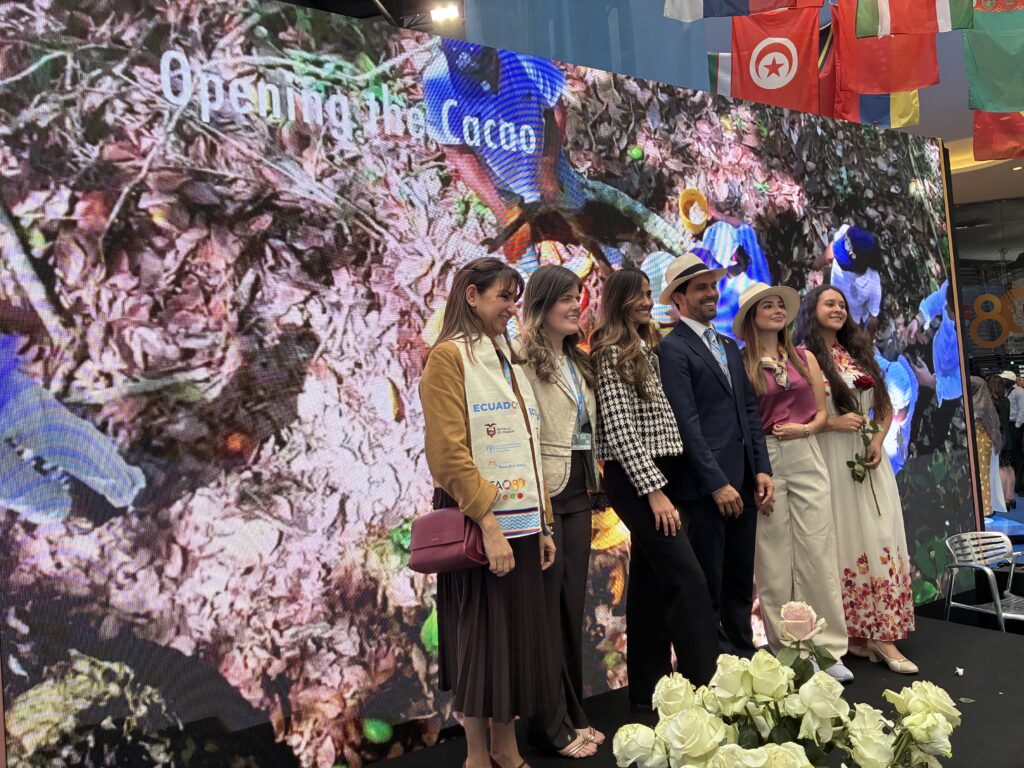
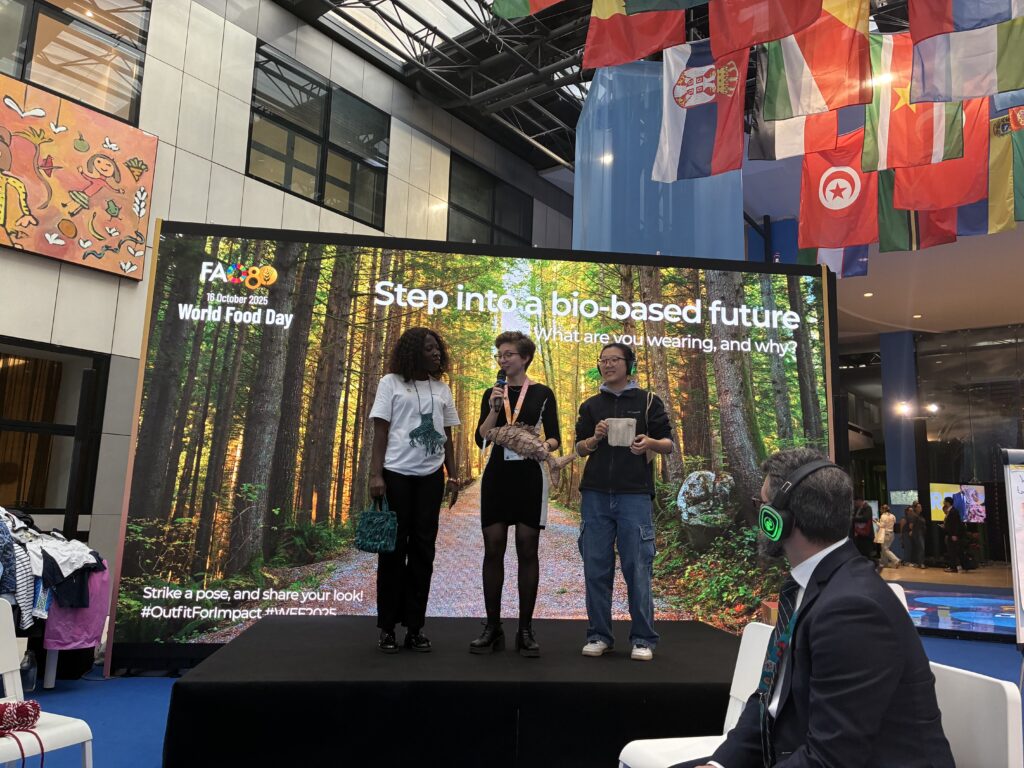
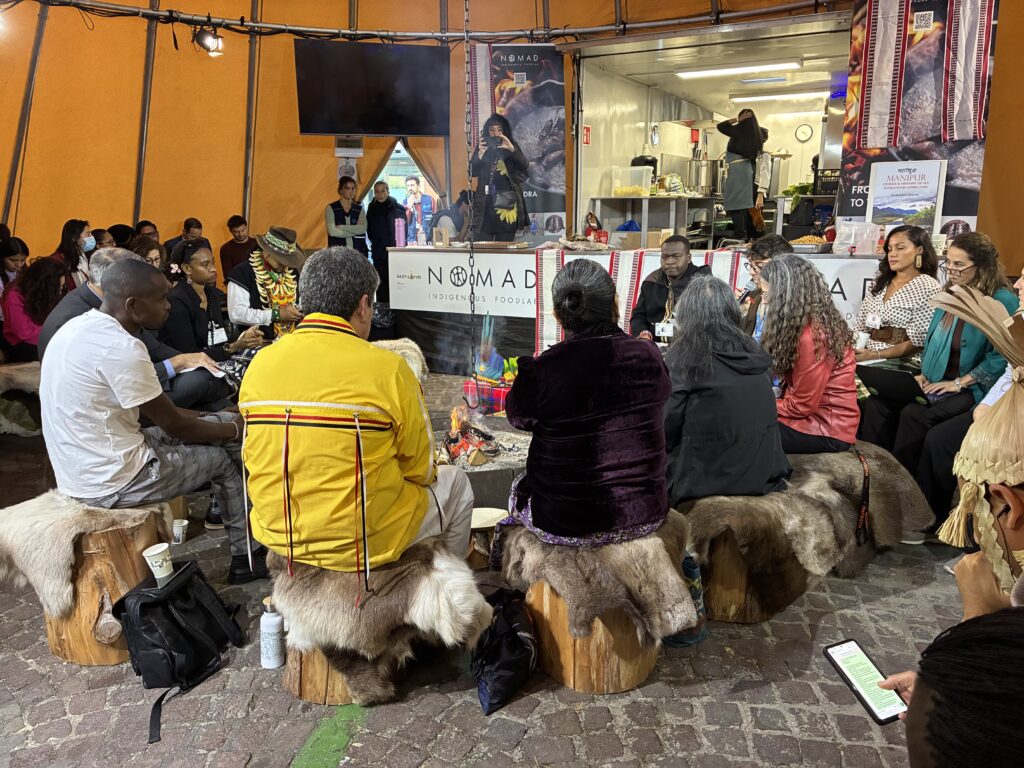
Now in its fifth year, the WFF continues to empower youth to mobilize efforts on local-level platforms, encouraging dialogue with stakeholders on topics that align with the WFFs mission of transforming agrifood systems in local contexts. Prior to this year’s forum, 25 National Youth Chapters had been established; 38 new chapters have been initiated, including one in the USA. Universities are ideal laboratories for this kind of activity, with opportunities to address issues like food waste and smart consumption in a defined educational environment. Wesleyan’s Global Engagement community is excited to partner internally with colleagues and peers in the Patricelli Center for Social Entrepreneurship and the College of the Environment, and externally with other North American universities; all eager to collaborate on the formation of the first US national chapter! Stay tuned for developments.
Huge thanks to former and current FCGS directors Masami Imai and Steve Angle for supporting this endeavor, and to Jeff Brez ’89 andBeth Goldoff ’02 for meeting Aleyna and Anita for lunch and providing an insider’s orientation to the FAO, related careers, and what it’s like to work for a multi-national organization.


